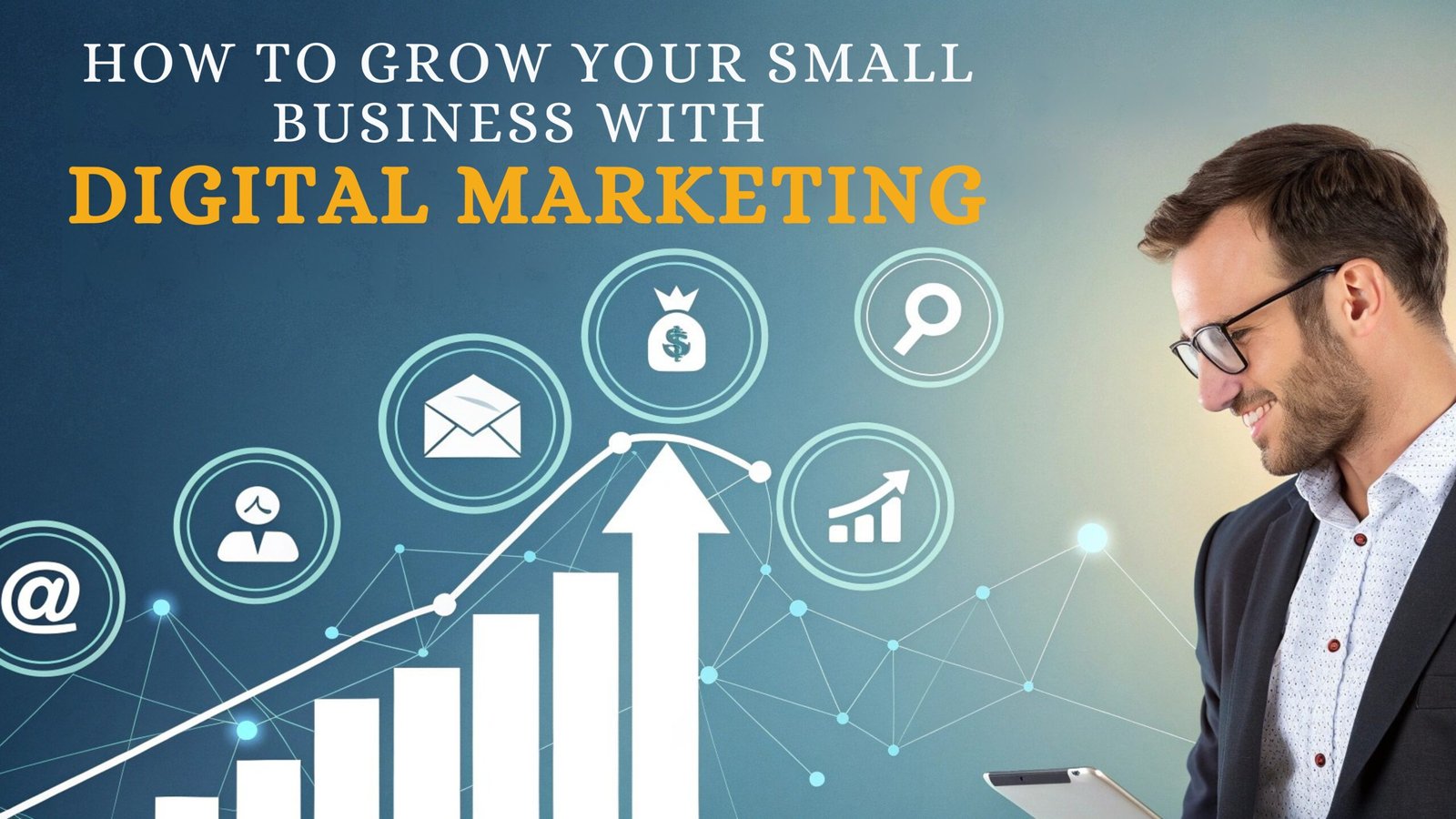In today’s competitive landscape, small businesses must leverage every tool to thrive. Digital marketing has appeared as a game-changing strategy, enabling businesses of all sizes to connect with their target audience, boost sales, and build brand recognition without the hefty price tag of traditional advertising. Here’s how you can grow your small business with digital marketing, step by step.
How you can grow your small business with digital marketing, step by step :
Develop a Strong Online Presence
The first step in digital marketing is ensuring your business is discoverable online. Here’s how:
- Create a Website: Your website is your digital storefront. Ensure it’s professional, mobile-friendly, and optimized for search engines (SEO).
- Optimize for Local SEO: If your business serves a specific area, claim your Google My Business profile and use location-based keywords to attract local customers.
- Set Up Social Media Accounts: Establish a presence on platforms where your audience spends their time, such as Facebook, Instagram, or LinkedIn.
Leverage Content Marketing
Content marketing helps establish your authority in your industry and keeps your audience engaged.
- Start a Blog: Share tips, how-tos, and insights related to your industry. For example, a bakery could blog about “Easy Cake Recipes” or “Tips for Baking the Perfect Loaf.”
- Use Video Content: Platforms like YouTube and TikTok are excellent for sharing tutorials, product demos, and behind-the-scenes content.
- E-books and Guides: Create free downloadable resources to capture leads and build trust with potential customers.
Invest in Paid Advertising
Paid digital advertising offers targeted exposure, ensuring your message reaches the right audience.
- Pay-Per-Click (PPC): Use platforms like Google Ads to display your business in search results.
- Social Media Ads: Platforms like Facebook and Instagram allow precise audience targeting based on demographics, interests, and behaviors.
- Retargeting Ads: Re-engage users who’ve previously visited your website or interacted with your content.
Build an Email Marketing Strategy
Email marketing is a cost-effective way to stay in touch with your customers.
- Collect Email Addresses: Use sign-up forms on your website and offer incentives like discounts or exclusive content.
- Send Newsletters: Share updates, promotions, and valuable content with your subscribers.
- Automate Campaigns: Tools like Mailchimp or HubSpot can automate your email marketing efforts, saving time and increasing efficiency.
Engage on Social Media
Social media platforms are excellent for building relationships and increasing brand awareness.
Transform Your Digital Presence
Get personalized strategies and solutions tailored to your business needs.
- Free Initial Consultation
- Custom Solution Planning
- Expert Team Support
- Post Regularly: Share engaging content such as promotions, testimonials, and industry news.
- Interact with Followers: Respond to comments, answer questions, and engage in conversations to build a loyal community.
- Run Contests and Giveaways: Encourage shares and participation to expand your reach organically.
Analyze and Adjust
Measuring results and making adjustments is crucial to maximize your digital marketing efforts.
- Track Metrics: Use tools like Google Analytics to monitor website traffic, conversion rates, and other key metrics.
- A/B Testing: Experiment with headlines, images, and calls-to-action (CTAs) to see what works best.
- Feedback Loops: Collect customer feedback to refine your strategies and better meet their needs.
Why Digital Marketing Works for Small Businesses
Digital marketing levels the playing field, allowing small businesses to compete with larger companies. It offers measurable results, cost-effective strategies, and the flexibility to adapt as your business grows. Whether you’re running a local bakery, a boutique shop, or a service-based business, digital marketing can help you:
- Increase brand visibility.
- Reach targeted audiences efficiently.
- Build long-term customer relationships.
- Drive sales and revenue.
Final Thoughts
Growing a small business is no small feat, but digital marketing provides the tools and strategies to make it achievable. By building a strong online presence, creating valuable content, and leveraging paid advertising and social media, you can set your business on a path to success. Start small, measure your progress, and adapt your strategies to achieve the best results.





